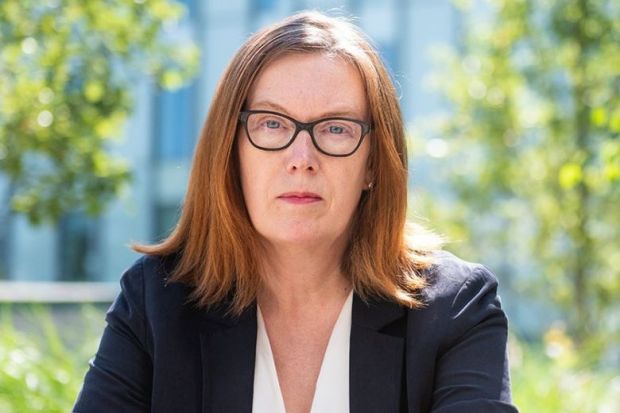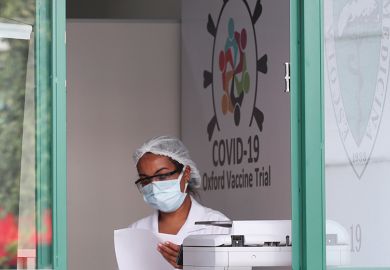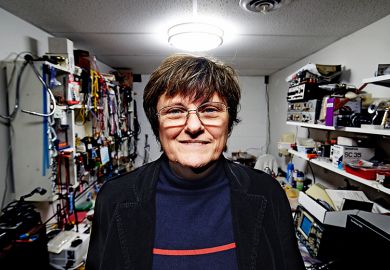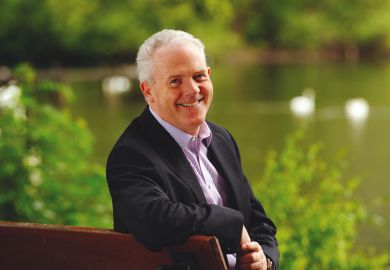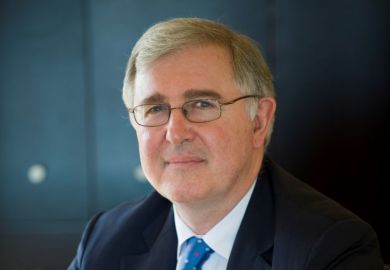The scientists who led the development of the University of Oxford’s Covid-19 vaccine have been recognised in the Queen’s Birthday Honours, alongside Philip Augar, who led the review of post-18 education in England.
Sarah Gilbert, Saïd professor of vaccinology at Oxford, receives a damehood for services to science and public health in Covid vaccine development, while Andrew Pollard, professor of paediatric infection and immunity, gets a knighthood for services to public health, particularly during the Covid-19 pandemic.
Adrian Hill, another member of Oxford’s vaccine team and director of the Jenner institute, was awarded an honorary knighthood for services to science and public health for his work on Covid-19.
Nearly a quarter of this year’s list is made up of recipients recommended for their work during the pandemic. This also includes knighthoods for fellow Oxford academics Peter Horby, professor of emerging infectious diseases and global health, and Martin Landray, professor of medicine and epidemiology, who leads the Recovery clinical trials into treatments for Covid-19.
Ellen Brooks Pollock, senior lecturer in disease modelling and veterinary public health at the University of Bristol, receives a CBE for her scientific advice during the pandemic, as does Alison Holmes, professor of infectious diseases at Imperial College London. Linda Bauld, Bruce and John Usher professor of public health at the University of Edinburgh, receives an OBE for guiding the health response and helping the public’s understanding of the pandemic.
Beyond Covid-19, Mr Augar, whose review reported in 2019 and has been highly influential in shaping English higher education policy ever since, has been honoured with a knighthood for his services to higher education. The Augar review recommended that tuition fees should be cut to £7,500 a year – something that is reportedly back on the Westminster government’s agenda.
Michael Houghton, who won the Nobel Prize in Physiology or Medicine for his work on identifying the virus hepatitis C, receives a knighthood for services to medicine.
Two vice-chancellors were honoured this year: Robert Allison, outgoing vice-chancellor of Loughborough University, receives a CBE, and Gerald Pillay, the long-serving vice-chancellor of Liverpool Hope University, receives an OBE, both for their services to higher education.
Other recipients in higher education include Helen Atkinson, pro vice-chancellor for aerospace, transport and manufacturing at Cranfield University, who is made a dame, as is Caroline MacEwen, chair of the Academy of Medical Royal Colleges.
John Aston, Harding professor of statistics at University of Cambridge and a scientific adviser to the government, receives a knighthood, as does Andrew Hopper, professor of computer technology at the University of Cambridge.
Nigel Biggar, Regius professor of moral and pastoral theology at Oxford, receives a CBE for his services to higher education, while Jim Al-Khalili, professor of physics and of public engagement in science at the University of Surrey, receives one for services to science and public engagement.
Register to continue
Why register?
- Registration is free and only takes a moment
- Once registered, you can read 3 articles a month
- Sign up for our newsletter
Subscribe
Or subscribe for unlimited access to:
- Unlimited access to news, views, insights & reviews
- Digital editions
- Digital access to THE’s university and college rankings analysis
Already registered or a current subscriber? Login
